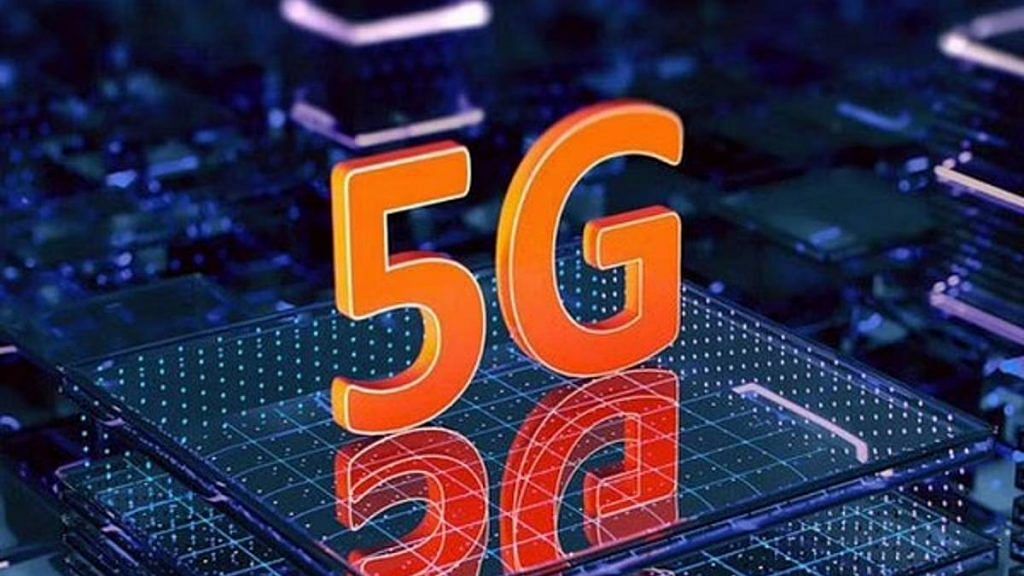New Delhi: It’s been exactly a month since Prime Minister Narendra Modi launched 5G in India — with services now available in all major cities — but there’s been little discussion, say experts, of the potential the technology has to enable a leap forward in areas such as financial inclusion. Or about issues such as the role of government, and how legacy institutions can adapt to make the best use of 5G.
After the 2 October launch, the commentary in the tech space was largely focussed on how 5G could be a game-changer and will potentially enable industries to embrace a massive technological transformation.
However, concerns remain about how the older ecosystem will be able to keep up. The discourse has also only focussed on the incremental improvements that 5G will enable, Dermot Mee, chief operating officer of the US-based Singularity Group, told ThePrint.
The Singularity Group conducts courses on upskilling for industry leaders who are willing to move towards newer technology such as AI and robotics.
“5G has the potential to bring an entirely new population into the economy. A lot of people think that it will accelerate existing businesses. That is true but that is an incremental view; that is basically saying that I will lower my cost and increase my productivity by using 5G,” Mee said.
“The opportunity of 5G in India is completely different. I think the idea is to really bring the unbanked into the system. It is marrying 5G connectivity with local brick-and-mortar businesses so that you can build trust,” he added.
This aspect is also articulated in a white paper released by Tata Consultancy Services earlier this year. The paper says that the disruption following 5G has the capability to improve banking and financial services across the country, especially in rural areas.
“The impact of 5G on banking will be profound as the high speed, low latency, and higher bandwidth will not only enable banks and financial institutions to provide a superior digital experience but also build high-end user-centric digital engagement,” it says.
“Along with faster data accessibility, 5G has the potential to fuel innovation in all forms, enhance back-end processes, physical branches, and customer experience, and actively drive fine-tuned interconnected ecosystems,” adds the paper.
Also read: ‘New India will not remain a mere consumer of technology’ says PM Modi while launching 5G in India
Challenges for the government
One of the main challenges, according to Mee, is the lack of trust among people in mobile banking.
“I think the largest challenge with the rapid expansion of mobile devices in India is that people still don’t trust the systems on devices for a lot of their commerce,” Mee said. “You have to combine local brick-and-mortar banking, like having a local bank and then using that as an education centre, in order to get people to trust a financial institution.”
He added that Europe and the US are repurposing institutions such as banks and post offices as education centres.
“So, that is a way to combine a massive tech leap forward with the need to build trust, for people to actually use these technologies — and that will grow the entire economy,” he said.
Experts have also highlighted the massive deployment that will be needed to properly take advantage of 5G. According to professor Abhay Karandikar, director of IIT Kanpur, one of the major bottlenecks will be making the data transport networks operational.
“Although the idea is noble and once this policy rolls out, I am sure, it will penetrate with adequate efforts from the government and help financial technology to thrive, one of the major bottlenecks is the widespread deployment and mobile backhaul (basically the back-end connectivity) which is basically the transport network (of data),” Karandikar explained.
“Fibre accessibility is also an aspect of consideration as you have to connect the 5G base stations to the network operators. I hope once it is deployed these challenges will be explored in detail,” he said.
Further, the government will play a pivotal role in ensuring that there is more capital flow in sectors witnessing such rapid change.
“You (the government) have to make it attractive for people to put capital into emerging technologies,” Mee emphasised. “Therefore, a change in the capital gains structure from the taxation standpoint is crucial, providing tax advantages for large companies to spend more on research and development and invest in emerging areas.”
One major concern is also whether newer technology (like 5G) could be sustainable or not.
“With something like 5G, there will be many people who will be too early,” Mee said. “This is the exact thing that happened with online education. People rushed to start an edtech company. For me, it is okay for a platform to emerge, provide something and then fail. That is not necessarily the idea that online education as a whole is a bad idea. It just means that a particular offering may be too early. But it is not that it was a bad idea in principle.”
(Edited by V.S. Chandrasekar)
(This is an updated version of the copy.)
Also read: India will be global benchmark in IT, data Bill likely next year, says Union minister Vaishnaw
